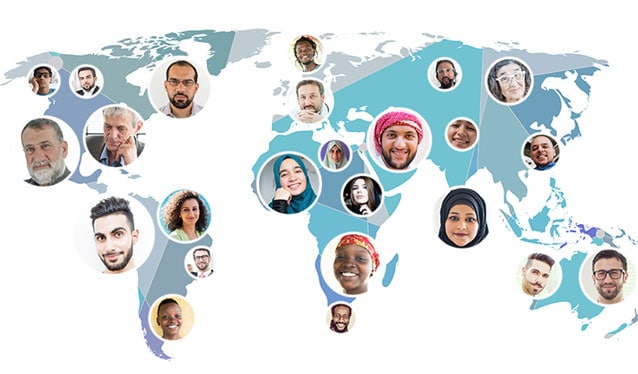I believe that effective teams are made up of happy employees. At PMI, I’ve seen firsthand how employee wellbeing boosts engagement, productivity and, ultimately, business innovation.
And employee wellbeing thrives in a culture of empathy, kindness, and inclusion. So, we are keenly aware that to achieve our vision of a smoke-free future, we must make this culture a business priority. People come first—particularly for a company undergoing radical transformation such as ours.
By creating a nurturing, supportive workplace, we are giving people space to be their true selves and contribute their best—which, in turn, allows people to be at their most innovative.
In a world where hybrid working is the norm, the key to success is collaboration, communication, and connectivity between teams.
So, how can an organization increase employee engagement and satisfaction, enabling people to feel connected to their company and to each other, while at the same time driving innovation and business results?
I think the best way is to establish an effective mentoring network, where connections are made that can ultimately benefit an organization as a whole—and where we can all build true empathy.
Stefano Volpetti,
President, Smoke-Free Inhaled Products & Chief Consumer Officer
Seeds of change
I’m grateful to be part of a company that believes in the power of employee-led change—nurturing small ideas and giving them the right conditions to flourish. I’ve been particularly glad to see the success of iGrow, a grassroots mentoring program started in 2020 by a group of PMI employees.
The program began with 30 participants in Neuchâtel, Switzerland, who paired up with the aim of sharpening their leadership skills, expanding their networks, and advancing as individuals by being accountable to someone outside of their immediate team.
It was named “Most Impactful Mentoring Program” of 2022 by the mentoring platform Mentorloop—testament to PMI’s commitment to inclusion and global collaboration, as well as our passion to drive meaningful change.
Shifting the culture
What’s behind the success of iGrow? I’m convinced it’s because it’s an effective mentoring program that’s driving a culture of collaboration and growth—crucial in attracting and retaining a variety of talent.
When employees from different teams and from a variety of walks of life engage in one-to-one conversations, it helps them acknowledge and embrace their similarities and differences—and that’s when true change can occur.
Mentoring is, of course, about professional development. Opportunities for mobility are enhanced when employees are encouraged to leverage career advice from senior colleagues, and it can also allow leaders to introduce younger members of staff to their networks. Research shows a mentor is likely to increase a person’s chances of success. 80 percent of CEOs in the U.S. say they have received mentoring.
But there are deeper benefits. Mentors and mentees are both making the choice to invest in personal growth. The mentee gains trusted advice and guidance, while the mentor can benefit from new perspectives, and refine their leadership skills. It’s why 84 percent of U.S. Fortune 500 companies now have a mentoring program.
And how can both parties benefit the most? By committing to the process. I know from experience that being a mentee has made me a better mentor, and vice versa.
Mentoring for success
For coaching and mentoring ideas, I encourage companies to look at programs such as iGrow and @Mentorloop. They encourage thoughtful collaboration, authentic inclusion, and a spirit of curiosity.
Studies show that mentoring programs increase talent retention, camaraderie among employees, and employee satisfaction. According to 2019 CNBC/SurveyMonkey data, 90 percent of employees who have a career mentor are happy at work.
iGrow underscores the value of allowing teams the space to act and move businesses forward. An important aspect of this space is giving employees room to make mistakes and, most importantly, to learn from them.
Ultimately, it’s about encouraging a growth mindset within your organization, to reap the rewards of a more connective, inclusive workforce in future. Who wouldn’t benefit from cultivating that?








